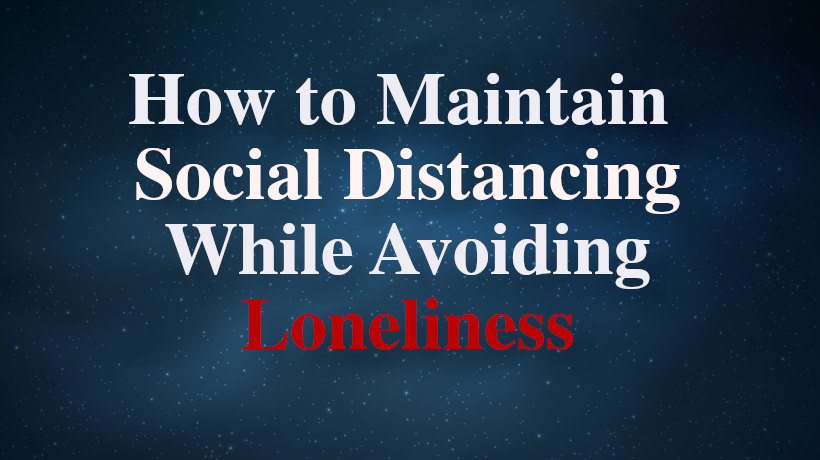We’re in the thick of the COVID-19 pandemic, and millions of Americans, and many millions more across the globe, are staying home avoiding social contact to help flatten the curve. While this measure is needed to help contain the spread of the virus, unfortunately, the isolation can result in feelings of loneliness, as well as stress and anxiety.
We should remain optimistic that we’ll get through this tough situation. In the meantime, there are many things we can be doing to get through the sense of loneliness and isolation that comes with prolonged social distancing.
Participate in Virtual Face-To-Face Interactions
The next best thing to in-person interaction is video chat, because facial cues, body language and other nonverbal forms of communication are important for bonding. When possible, opt for video over messaging or calling. If you’re working from home, conduct meetings via video platforms such as Skype or Zoom to preserve a connection with teams. Have your kids interact with their friends and family members via video so they can still see them at a safe distance. These interactions can lead to deeper, more intimate conversations than you would have over text or emails or the phone.
Practice Kindness
Practicing more kindness and having gratitude toward others and toward ourselves is a great way to feel closer, rather than feel farther apart. Dr. Vivek H. Murthy, the former surgeon general of the United States, said in a recent New York Times article, “Helping another person can be an incredibly powerful experience that not only forms a connection between people but also reaffirms to ourselves that we’re bringing value to the world. Reach out to your neighbors and ask how they’re doing or how you can assist in a big or small way. Many people will be struggling during this crisis. They won’t have the help they need, the income or emotional support to get through it.”
Nurture Your Network
Fundamentally, there are two ways to overcome loneliness: nurture your existing relationships or form new ones. Reflect on your current state of social health and then take one digital action to deepen it—such as getting in touch with a friend or family member you haven’t spoken with in a while—or to broaden it—such as reaching out to someone you’d like to get to know. Make the most of your online connections by having real conversations that help you get to know the person better. Use conversation prompts with games such as TableTopics to spark interesting dialogue during a video call.
Reflect on Emotional Connections
Dr. John Sharp, a board-certified psychiatrist on the faculty at Harvard Medical School, suggests using the alone time as an opportunity for experiencing a rich array of thoughts and feelings. You can easily remember the places you’ve been, the people you’ve been with, the feelings you experienced together — all the highs and the lows. Whether we’re together physically or virtually, in these trying times when we do need to practice social distancing, we should avoid unintentionally practicing emotional distancing. Taking a moment to feel the connection that you share with each significant other, family members or friends offsets loneliness.
Reframe How You Perceive Isolation
Staying virtually connected is an important strategy for fighting social isolation, said Ashwin Vasan, president and CEO of Fountain House, a New York City-based charity that works to reduce the effects of isolation on people with mental illness. He suggests talking with loved ones about how the experience is feeling — and reframing the way we think about this period of isolation. By distancing yourself, you’re contributing to a societal act — a collective action — that is not only protecting yourself but protecting others and you should try to see some community and connectedness in that to motivate yourself through this difficult time.
Socialize Online Social isolation has resulted in innovative ways to engage and connect with people. Graduations, birthdays, dating and even happy hour have gone virtual. Yes, while you may no longer be able to go out Saturday nights, that doesn’t mean you can’t enjoy with friends and family online. For example, if you were part of a book club, consider inviting a group of friends for a virtual reading and discussion over FaceTime or Zoom. If a family member has a milestone birthday, gather the family online and show your love for Grandma in real time. With virtual meditation gatherings, yoga sessions, live streaming workouts and virtual religious services, there is no reason why you can’t do the things you enjoy



